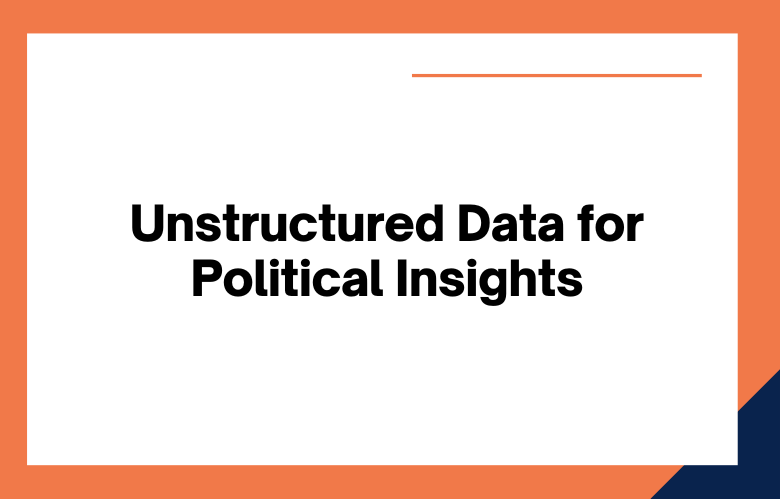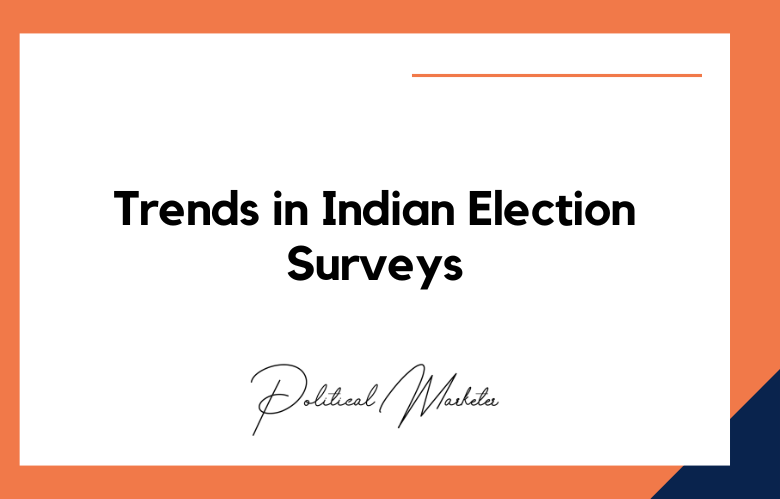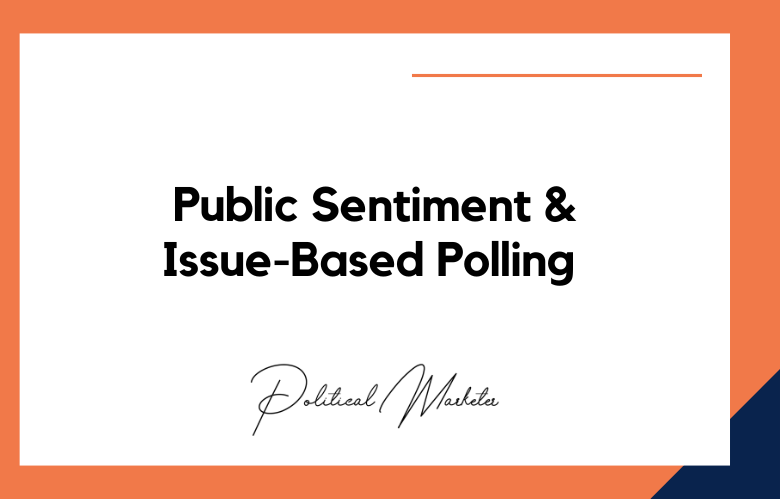With the rise of digital media, political campaigns are turning to advanced analytics to gain insights into their audience. It includes leveraging unstructured data using linguistics and natural language processing (NLP).
These techniques allow campaigns to understand people’s feelings about a candidate or issue and use the data to craft targeted messages and strategiesLet’s’s examine how linguistics and NLP can help you know unstructured data structure for political insights.
In political campaigns, data is vital in gaining insights into how people think and feel about a candidate or issue.
With the help of linguistics and natural language processing (NLP), unstructured data can be leveraged to gain valuable insights into the political landscape. Let’s explore how this works.
In the world of data-driven political campaigning, leveraging unstructured data is critical to understanding public opinion and gaining insights into how to make better decisions.
Using linguistics and natural language processing (NLP) can uncover powerful insights from unstructured data that can provide invaluable insight into how people think about politicians and their campaignsLet’s’s explore how linguistics and NLP help unlock the power of unstructured data in political campaigns.
What is Unstructured Data?
Unstructured data is information that is not organized in any particular format.
It can include text, audio files, images, videos, and other digital media sources. This data type is often complex to interpret because it does not follow any particular structure or pattern; however, leveraging linguistics and NLP tools can provide valuable insights into public opinion.
How does Linguistic Analysis Work?
Linguistic analysis involves analyzing language for patterns and meaning. For example, a linguist might look at a candidate’s speeches to assess their level of clarity and coherence in their communication style.
They may also look for common themes across various topics or arguments to determine the most critical areas to voters.
This analysis provides valuable insights into how people perceive a candidate or political issue.
How does NLP Work?
NLP is extracting meaningful information from unstructured text data using computer algorithms.
These algorithms analyze large amounts of text to identify keywords, phrases, sentences, and paragraphs relevant to the subject.
This allows us to quickly identify topics that are popular among voters and how they feel about those topics.
Linguistic Analysis
Linguistics is the study of language and structure. It involves analyzing different aspects of language, such as grammar, syntax, semantics, pragmatics, discourse analysis, and phonology.
By understanding these elements of language, you can gain valuable insights into how people think about specific topics or issues.
For example, suppose you want to understand how people feel about immigration or healthcare reform in the United States. In that case, linguistic analysis can provide invaluable insight into how people discuss those issues online.
Natural Language Processing (NLP)
NLP is a subfield of artificial intelligence that deals with computers’ understanding of natural language.
NLP techniques can quickly analyze large amounts of text to extract meaningful information.
This technique is beneficial for political campaigns as they can use NLP to quickly analyze news articles or social media posts related to their topic and understand what people say about it without manually reading through all the text.
For instance, if a candidate wants to know what people are saying about their policies on immigration reform, then they could use NLP techniques to quickly identify relevant keywords in post sentiment towards those policies on social media platforms like Twitter or Reddit.
It will allow them to quickly determine whether their stance on immigration reform is popular amongst their target audience and make any necessary changes before launching their campaign.
Linguistic Analysis for Political Insights
Linguistics is the study of language’s structure, meaning, and usage.
It can be used to analyze text for patterns that reveal how people think about a candidate or issue.
By analyzing words, phrases, and sentence structure, linguists can uncover underlying attitudes within a text. It allows campaigns to understand the audience’s preferences and create targeted messages that resonate with them.
Linguistic analysis is a process used to analyze words and phrases to gain deeper insight into their meaning.
By analyzing language structure, linguists can uncover patterns to understand how people think about politics, issues, candidates, policies, etc.
Linguistic analysis can identify trends in public opinion or uncover hidden biases that could influencpeople’s’s decisions.
Natural Language Processing (NLP) for Political Insights
Natural language processing (NLP) is a branch of artificial intelligence (AI) that analyzes human language.
NLP enables computers to understand human speech by recognizing patterns in text.
This type of analysis can be used to identify keywords related to a political campaign and provide insights into what topics are being discussed online by the public.
NLP also allows campaigns to target specific audience segments better by understanding who is talking about them online.
NLP is an artificial intelligence technology used to understand text-based data by breaking it down into parts—words, phrases, sentences—and then analyzing each for its meaning.
This allows computers to” “re”d” text-based data just like humans do and gain insights that would otherwise be impossible to uncover.
It makes NLP a powerful tool for analyzing large amounts of text-based data quickly and efficiently.
For political campaigns, this means they can quickly gain insights from vast amounts of publicly available information such as social media posts, news articles, speeches, press releases, etc., allowing them to stay on top of public opinion and make better-informed decisions with their campaign strategy.
They can also use NLP to target specific audiences with tailored messaging based on their language when discussing politics or current events.
Leveraging Unstructured Data for Political Insights
Campaigns can use linguistics and NLP techniques to leverage unstructured data from sources such as social media posts or news articles for valuable political insights.
By understanding what people say about specific issues or candidates, campaigns can craft more effective messaging strategies that resonate with their target audiences.
They can use this data to develop targeted ad campaigns to significantly impact their intended audience.
Conclusion
Political campaigns need accurate insights to craft effective strategies to reach their target audiences.
Leveraging unstructured data through linguistics and natural language processing (NLP) provides valuable insight intopeople’s thoughts about specific issues or candidates. It helps inform campaign strategies and target messaging accordingly.
By utilizing these techniques, political campaigns can ensurthey’rere crafting effective messaging strategies that will have the maximum impact on their audiences.
One must first understand how people process information to predict the political future.
How our brains receive, store, and retrieve data affects everything from the polls we take to the ads we see on television.
By understanding how unstructured data is structured in the human brain, we can unlock its potential for providing insights into voting behavior and other essential aspects of politics.
Please contact us if you want help incorporating these principles into your political campaign.
We specialize in helping candidates leverage unstructured data to win elections.
Call: +91 9848321284
Email: [email protected]











